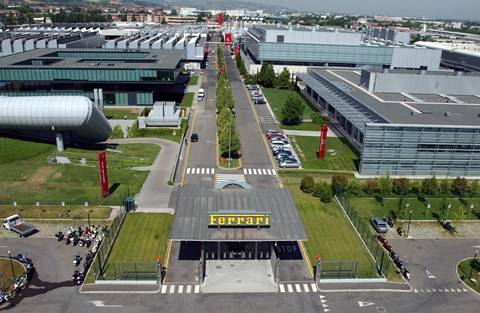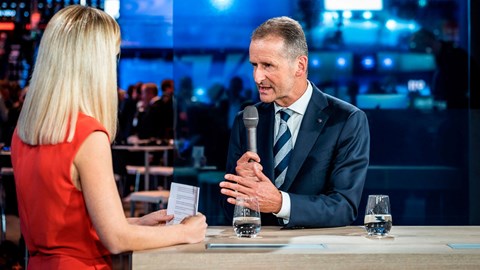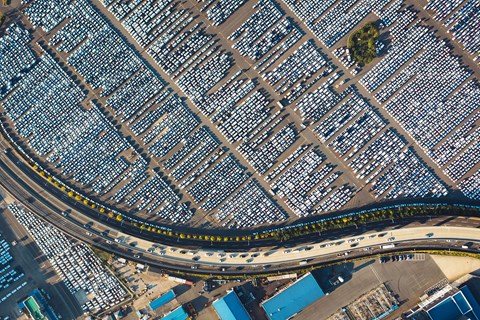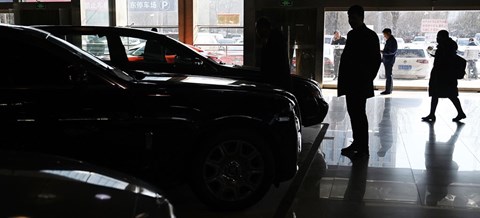► Coronavirus and the car industry
► How the auto sector is reacting
► Regular news and updates
Bentley has announced a major cost cutting exercise and plans to axe a quarter of its workforce, Crewe announced today. It is seeking 1000 redundancies – voluntary where possible – from its UK workforce of 4200 staff.
The programme to electrify its range has also been set back, Bentley confirming its first electric vehicle (EV) would be launched in 2026 and a hybrid in every model range by 2023. More on hybrid and electric Bentleys here.
It’s the latest sign that car manufacturers are having to make major cuts to get their business plans back on track. It follows similar news at Aston Martin and McLaren, two other high-profile British car makers which are having to make sweeping job losses and restructuring plans in the wake of the coronavirus outbreak.
How car dealerships reopened after Covid-19
Job losses follow more positive news earlier this week, as Britain’s car dealerships were allowed to reopen on 1 June, following an easing of the lockdown rules. Showrooms have to adhere to the same social distancing rules already seen in suprmarkets and garden centres.

The opening of dealerships coincides with the second phase of coronavirus restrictions. On 15 June all non-essential retail, from department stores to small, independent shops will also be allowed to resume trading – provided that the R infection rate continues to fall.
It’s possible that the car purchasing process will be changed forever following coronavirus – perhaps with a move to buying online. However, a catastrophic 97% drop in car sales in April 2020 suggests that people will prefer to buy their cars from dealerships.
Bouncing back: what each car manufacturer is doing about Covid-19
Aston Martin
Gaydon hasn’t revealed when its factory will reopen, but it is extending warranties in the meantime and manufacturing PPE for the NHS. All new-vehicle warranties that were due to expire or have expired since 14 March are now extended to 30 June – hopefully when the pandemic has eased.
Audi
Audi has pledged to start building cars again from the end of the month. The brand is introducing new plastic barriers to separate workers on the line and measures to keep factory staff more than 1.5 metres apart wherever possible. Whole shift patterns are being reworked to help reduce contact, Ingolstadt said.
Bentley
Production has resumed at Crewe, but the VW Group has confirmed a major cost-cutting exercise which will see 1000 jobs go among the 4200 workforce in Crewe. The Beyond100 programme is designed to get Bentley shipshape as its centenary year comes to an end
Ducati
The Italian motorcycle company resumed production at its Borgo Panigale factory in Italy on 27 April.
Ferrari
Factories in Maranello and Modena rumbled back to life during the last week as part of the brand’s ‘Back on Track’ program, with the first vehicle of the Special Series line being a Monza SP2 in grey and black.
Ford
Dagenham is back in business, with new social distancing measures. As you’d expect, Ford have implemented a set of guidelines to reduce the risk of Coronovirus infection amongst its employees

Hyundai
Hyundai has just reopened its Czech factory.
Jaguar Land Rover
JLR is ramping up production of protective face visors to supply health workers in the NHS. It’s working with WHS Plastics to make 14,000 visors a week at its Advanced Product Creation Centre in Gaydon – that’s one every 30 seconds.
Nissan
Sunderland is set to reopen, but only with a pilot scheme that will see around 50 workers returning to the factory. There are currently no plans to restart production in the UK either, though cars should begin to roll off the factory floor of Nissan’s Barcelona plant from 4 May.
PSA
Peugeot Citroen hasn’t revealed when its factories will be back online, but has instead donated 700,000 masks to hospitals, emergency services and prefectures across Europe. It’s also involved in producing respirators.
Rolls-Royce
Rolls-Royce confirmed it has fitted out the boutique West Sussex plant with social distancing measures and upgraded sanitisation facilities so it could start a full shift on 4 May. Around 1000 staff are involved, in the best indication yet that there is light at the end of the tunnel.
Tesla
According to Bloomberg, Tesla intends to restart production in North America in the first week of May. On 29 April it announced a third consecutive quarterly profit, as revenues jumped in Q1 by 30% to $5.9 billion, making a modest $16m profit. Boss Elon Musk spoke vocally agains the US lockdown, saying: ‘Frankly I would call it forcibly imprisoning people in their homes against all their constitutional rights… It will cause great harm, not just to Tesla but to many firms. While Tesla will weather the storm, there are many small companies that will not.’
Vauxhall
Vauxhall has come up with a series of measures to prepare its Ellesmere Port factory to reopen, including keeping all doors open to minimise contact with door handles and new markings in break-out areas, to make sure workers can still apply social distancing in the workplace.

Volkswagen
VW partially reopened its Wolfsburg factory on 27 April, as it reopened the doors to around 8000 staff to build the new Golf on a one-shift basis. Production will gradually expand as it returns to normal levels in the weeks ahead. VW admitted that its factory shutdowns were costing €2 billion (£1.8bn) a week in fixed costs at the height of the shutdown, as it paid to mothball 124 plants and for 671,000 staff salaries according to chief executive Herbert Diess (above).
The plant will gradually ramp up production, starting at 10-15% of normal capacity as it starts building the Golf, before build returns to nearer 40% normal levels this week.
Coronavirus and the car calendar: all the events, motor shows and races cancelled and postponed
The Volkswagen Group earlier revealed a sobering 81% drop in operating profit in the first quarter of the year, as the Covid-19 pandemic took grip. And it seems likely that worse is to come, as the virus has gone on to become a global crisis and most commentators expect Q2 to be even worse.
VW said deliveries to customers fell by nearly a quarter from 2.6 million vehicles to 2.0m in the first three months. That figure includes all Volkswagen, Audi, Seat, Skoda, Bentley and Porsche group sales, as well as its commercial vehicle divisions Scania and MAN. In reporting a quarterly pre-tax profit of €700 million it said: ‘The Volkswagen Group expects operating profit for 2020 to be severely below the prior year, but still to remain positive.’
Which British car factories have been affected?
The entire UK supply chain is now in stasis, after the following UK car factories were closed by the coronavirus pandemic:
- Bentley (Crewe)
- BMW (Hams Hall)
- Jaguar Land Rover (Birmingham, Halewood)
- Mini (Oxford)
- Nissan (Sunderland)
- Rolls-Royce (Goodwood)
- Toyota (Burnaston)
- Vauxhall (Ellesmere Port and Luton)
Car makers scramble to make ventilators

Honda shut its Swindon factory after the last shift on 18 March, citing difficulties in the supply chain and with staff welfare. It had hoped to reopen the plant, which makes the Civic hatchback, on 6 April but that date has now proved hopelessly optimistic and it awaits further guidance from government and medical experts.
Fears the UK car making sector may be critically injured
Prof Karel Williams at Manchester Business School told The Guardian that British car manufacturing could be fatally impacted by the shutdowns. ‘It’s clear from what Volkswagen has been saying that lost sales will not be found again and there will be a massive hit in terms of loss-making in the major car makers,’ he said. ‘The markets will recover but the companies will be weakened just when they’re requiring large-scale investments in electrification. That will force them to rethink their portfolios of factories, models and markets.

‘The review of factories, models and markets is not going to be good for the British car industry. The last thing the industry needs is a major disruption to both demand and supply. The more marginal the operations, the model and the market, the more likely things are to be cut.’
Initially, most brands are committing to closing production lines for a couple of weeks, but the long-term outlook is far from certain as most European countries impose strict limits on the movement of people.
Making ventilators: how the car industry helped the pandemic effort

In a separate development, the British government is talking to manufacturers such as Ford and Jaguar Land Rover to see if they can help manufacture ventilators as the National Health Service ramps up preparations for mass sickness among the wider population.
More on car factories making ventilators
Coronavirus and the Chinese car market: demand collapsed 92% in February
To understand what’s about to happen in Europe, it’s worth looking at the pattern in China, where the virus originated.
The effect of the Covid-19 coronavirus has been causing havoc for the Chinese new-car market for months, with registrations equalling just 8 percent compared to the same period in 2019. According to figures published by Reuters from China Passenger Car Association (CPCA), just 4909 units were shifted in the first 16 days of February when 59,930 cars were sold in the same timeframe last year.
That equates to sales plummeting a staggering 92 percent, with the CPCA stating that dealerships remain bereft of foot traffic with customers staying behind closed doors. ‘Very few dealerships opened in the first weeks of February, and they have had very little customer traffic,’ the CPCA said.
To help alleviate the downturn in a market that sold 25 million vehicles in 2019, car makers are turning to the internet to generate an upturn and get customers buying cars again.
.jpg)
Reuters reports that Chinese manufacturer Geely has opened up a system where customers can order and buy cars through its website and have the car delivered to their driveway.
What’s more, according to Geely, potential customers can spec their cars via an online configurator, while test drives can be arranged through a local dealer, with the route starting from home addresses.
Other manufacturers are moving to this stay-at-home process as Chinese authorities increase warnings to stay away from public places.
The impact of the coronavirus is already showing globally, with the Geneva, Detroit and New York motor shows cancelled.